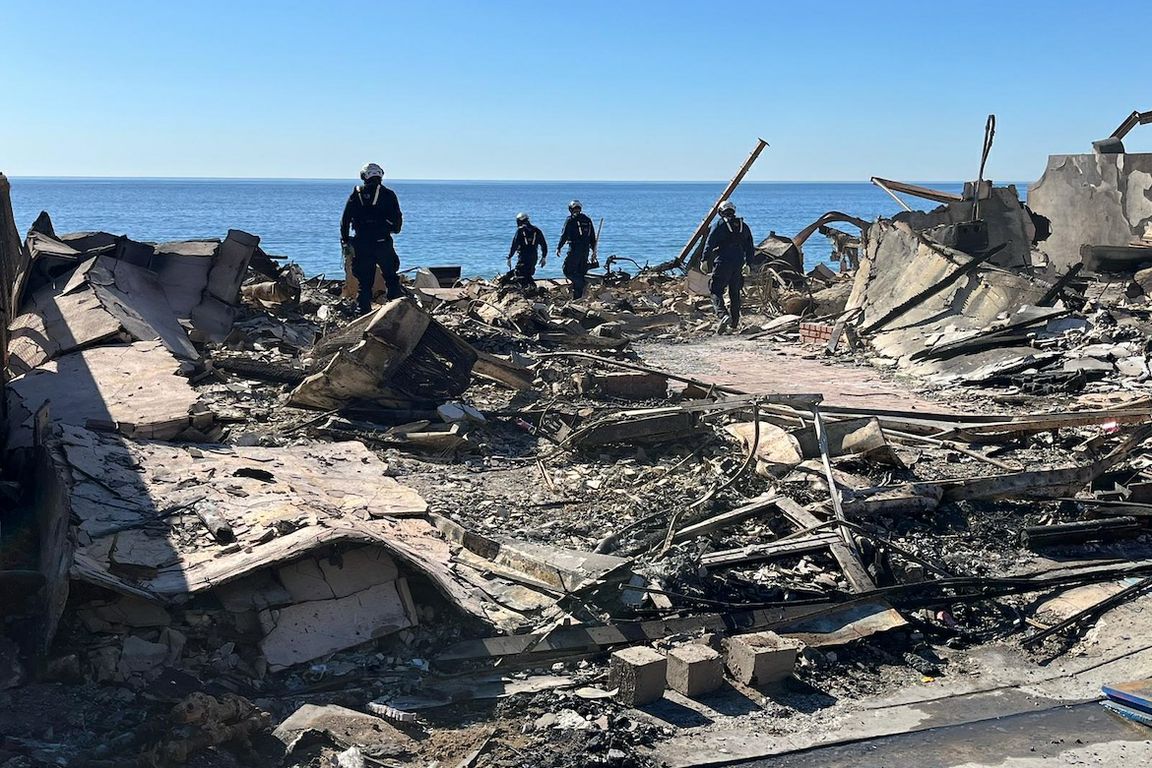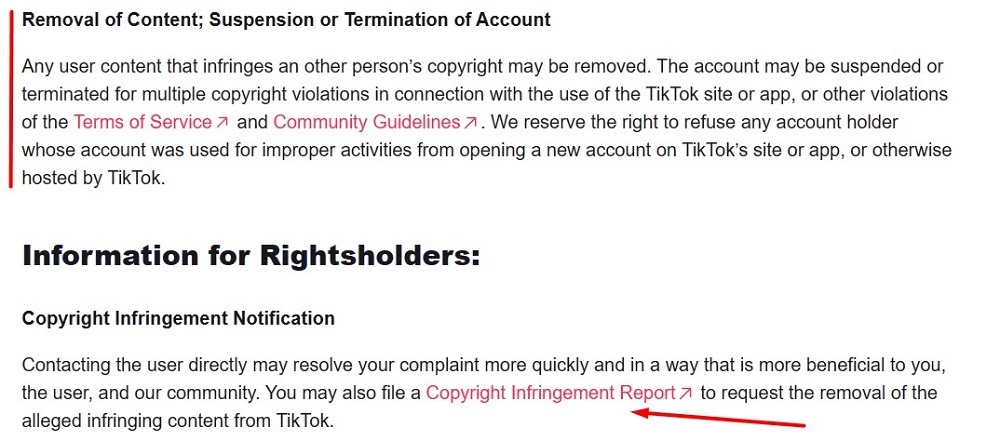Global Forest Destruction: Wildfires Contribute To Record Losses

Table of Contents
The Devastating Impact of Wildfires on Forest Ecosystems
Wildfires, once a natural part of some forest ecosystems, are now occurring with unprecedented frequency and intensity, causing widespread devastation. This drastic shift is largely attributed to the escalating effects of climate change.
Increased Frequency and Intensity of Wildfires
The link between climate change and increased wildfire activity is undeniable. Rising global temperatures are leading to drier conditions, longer fire seasons, and significantly more intense wildfires. The consequences are catastrophic.
- Rising global temperatures leading to drier conditions: Warmer temperatures accelerate evaporation, leaving forests more susceptible to ignition and rapid fire spread.
- Longer fire seasons: Extended periods of dry weather create ideal conditions for wildfires to ignite and burn for longer durations.
- Increased intensity of wildfires, leading to greater destruction: Higher temperatures and drier fuels result in more powerful and uncontrollable fires that consume vast areas of forest in a short time.
- Examples of recent devastating wildfires across the globe: The Australian bushfires of 2019-2020, the California wildfires, and the Siberian wildfires are stark reminders of the destructive power of these events, illustrating the increasing scale of global forest destruction.
Long-Term Ecological Consequences
The impact of wildfires extends far beyond the immediate destruction. The long-term ecological consequences are profound and far-reaching.
- Loss of habitat and biodiversity: Wildfires decimate wildlife populations, destroying habitats and disrupting delicate ecological balances. Endangered species are particularly vulnerable.
- Soil erosion and degradation: The loss of vegetation cover leaves soil exposed to the elements, leading to increased erosion and nutrient depletion. This hampers forest regeneration.
- Disrupted water cycles and increased risk of flooding: The destruction of forest cover alters water cycles, increasing the risk of both drought and flooding in affected areas.
- Impacts on indigenous communities and their livelihoods: Many indigenous communities rely on forests for their survival. Wildfires threaten their homes, traditional practices, and sources of food and income.
Wildfires as a Major Contributor to Global Forest Destruction
While deforestation from logging, agriculture, and urbanization remains a significant concern, wildfires are increasingly recognized as a major contributor to global forest loss.
Comparison with other forms of deforestation
Understanding the relative contributions of different deforestation drivers is crucial for effective conservation strategies.
- Data on global forest loss attributed to wildfires vs. other causes: While precise figures vary depending on the data source, studies consistently show a growing contribution of wildfires to overall forest loss.
- Geographic areas most impacted by wildfire-driven deforestation: Regions with a combination of high temperatures, dry climates, and extensive forest cover are particularly vulnerable. Examples include boreal forests, the Amazon rainforest, and regions of Australia.
- The synergistic effect of wildfires and other deforestation activities: Areas already degraded by logging or agriculture are more susceptible to wildfires, creating a dangerous feedback loop that exacerbates forest destruction.
The Role of Climate Change in Exacerbating the Problem
Climate change is not just a contributing factor; it's a primary driver of the increasing wildfire risk.
- Explanation of the feedback loop between wildfires and climate change (increased carbon emissions): Wildfires release vast amounts of carbon dioxide into the atmosphere, further accelerating climate change and creating a vicious cycle.
- Discussion of climate change mitigation strategies and their impact on wildfire prevention: Reducing greenhouse gas emissions through transitioning to renewable energy, improving energy efficiency, and adopting sustainable land management practices are crucial for mitigating the risk of wildfires.
Strategies for Mitigating Wildfire-Related Forest Destruction
Combating wildfire-related forest destruction requires a comprehensive and multi-faceted approach.
Improved Forest Management Practices
Sustainable forestry practices can significantly reduce the risk of wildfires and enhance forest resilience.
- Controlled burns and prescribed fires: Careful and controlled burning can reduce fuel loads and prevent larger, more destructive wildfires.
- Forest thinning and fuel reduction measures: Removing excess vegetation can create firebreaks and reduce the intensity of wildfires.
- Early warning systems and wildfire detection technologies: Advanced technology can help detect and respond to wildfires quickly, minimizing their impact.
Global Cooperation and Policy Initiatives
Addressing global forest destruction requires international collaboration and strong policy frameworks.
- International agreements and treaties related to forest conservation: Strengthening existing agreements and creating new ones to promote forest protection and sustainable forest management.
- Funding for wildfire prevention and response efforts: Investing in research, technology, and capacity building for wildfire prevention and response.
- Raising public awareness and promoting responsible land management: Educating the public about the importance of forest conservation and responsible land use practices.
Conclusion
Global forest destruction is a critical issue, and wildfires are significantly contributing to record losses. The escalating frequency and intensity of wildfires, fueled by climate change, pose a severe threat to biodiversity, ecological stability, and the global carbon cycle. Addressing this challenge requires a multifaceted approach encompassing improved forest management practices, strengthened international cooperation, and a concerted global effort to mitigate climate change. Only through proactive measures and a collective commitment to forest conservation can we hope to curb the devastating impact of global forest destruction, including the significant role of wildfires. Let's work together to protect our forests and combat the ongoing crisis of global forest destruction.

Featured Posts
-
 The Impact Of Buffetts Retirement On Berkshire Hathaways Apple Holdings
May 25, 2025
The Impact Of Buffetts Retirement On Berkshire Hathaways Apple Holdings
May 25, 2025 -
 When His Son Needed 2 2 Million Treatment This Dad Took Up Rowing
May 25, 2025
When His Son Needed 2 2 Million Treatment This Dad Took Up Rowing
May 25, 2025 -
 Nicki Chapmans Chiswick Home Garden Design And Inspiration
May 25, 2025
Nicki Chapmans Chiswick Home Garden Design And Inspiration
May 25, 2025 -
 Amsterdam Stock Index Plunges Over 4 Hitting One Year Low
May 25, 2025
Amsterdam Stock Index Plunges Over 4 Hitting One Year Low
May 25, 2025 -
 300 Million Cyberattack Impact On Marks And Spencer
May 25, 2025
300 Million Cyberattack Impact On Marks And Spencer
May 25, 2025
Latest Posts
-
 Potential Canada Post Strike Assessing The Risk To Customer Loyalty
May 25, 2025
Potential Canada Post Strike Assessing The Risk To Customer Loyalty
May 25, 2025 -
 Canada Post Strike Threat Impact On Customers And The Future Of Mail Delivery
May 25, 2025
Canada Post Strike Threat Impact On Customers And The Future Of Mail Delivery
May 25, 2025 -
 Is Canada Posts Decline Creating A Boom For Rival Delivery Services
May 25, 2025
Is Canada Posts Decline Creating A Boom For Rival Delivery Services
May 25, 2025 -
 The Rise Of Alternative Delivery Options In Response To Canada Post Issues
May 25, 2025
The Rise Of Alternative Delivery Options In Response To Canada Post Issues
May 25, 2025 -
 Cohere Asks Us Court To Dismiss Media Copyright Infringement Claim
May 25, 2025
Cohere Asks Us Court To Dismiss Media Copyright Infringement Claim
May 25, 2025
